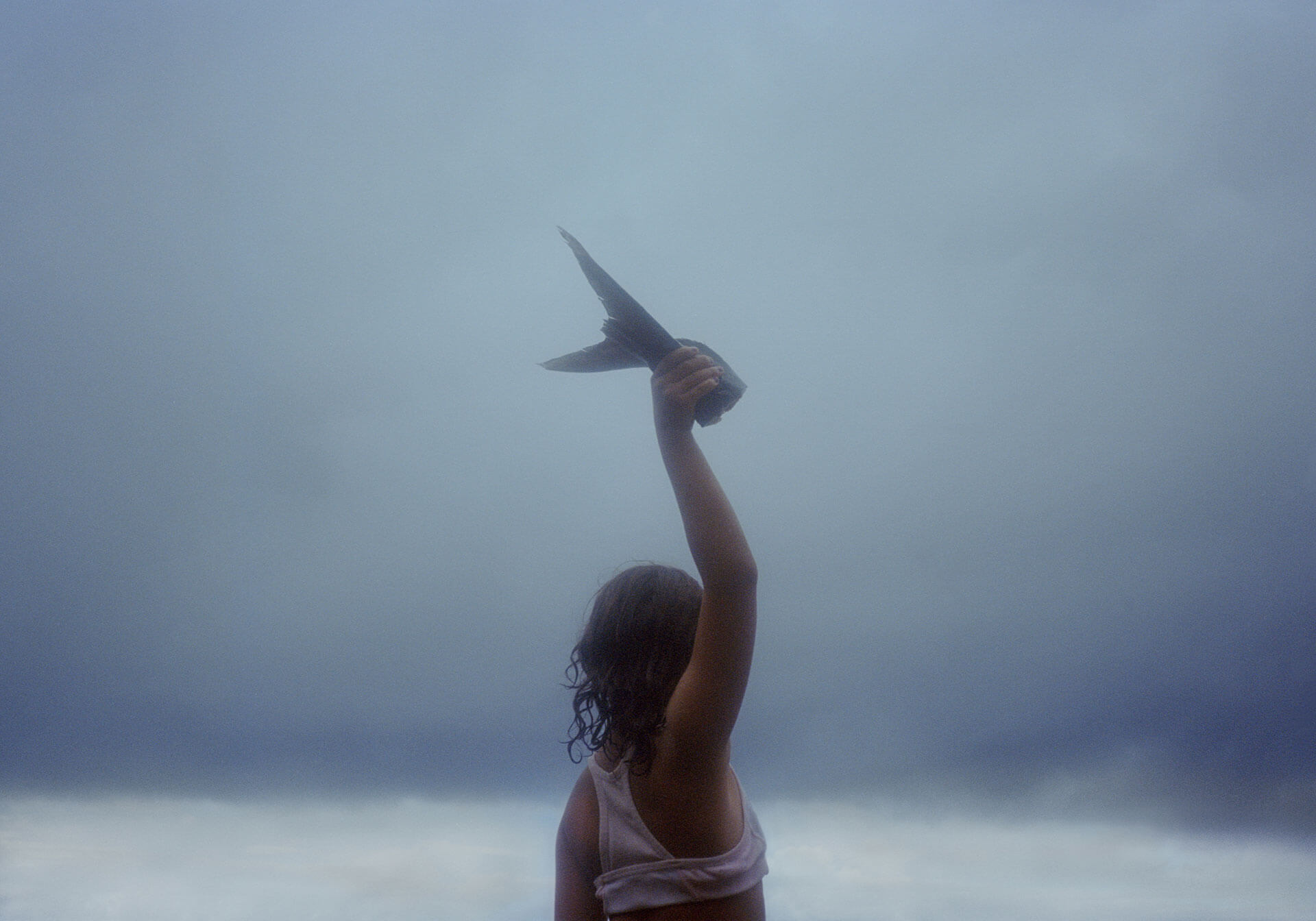Rhiannon Adam
Rhiannon Adam
Rhiannon Adam
United Kingdom
United Kingdom
United Kingdom
Series: Big Fence/Pitcairn Island
Series: Big Fence/Pitcairn Island
Series: Big Fence/Pitcairn Island
Pitcairn—an enigmatic place; legendary and infamous. A volcanic blip in the vast blue of the Pacific: two miles by one, Britain’s last Pacific Overseas Territory. Accessible only by quarterly supply vessel; no way on, no way off.
—Pitcairn and ‘paradise’ go hand in hand—Mutiny on the Bounty island, the Anglo-Tahitian idyll, the Hollywood darling. This façade slipped in 2004 when a total of 8 living Pitcairn men were convicted of sexual crimes against young girls. By 2015, just one child and 42 islanders remained. Paradise Lost.
—On Pitcairn, every problem is amplified—honesty is eclipsed by need, women relying on their abusers. In this most isolated of places, claustrophobia prevails while loneliness thrives. Relationships are fractured, locations bare scars.
—With history repeating, their story became my own.
Bounty Day, Found Photo
Bounty Day, Found Photo
Bounty Day, Found Photo
Bounty Day, Found Photo
This image is a found photo showing a Pitcairn family during Bounty Day celebrations. The women are obscured, while the lone male looks out, in Bounty costume. Like the image ‘Pitcairn Girl’ it has been destroyed by the island’s own harsh environment. Humidity ravages anything left behind, as though the island is intent on obscuring its own memory. As though records are not meant to be kept, as if reality is destined to be distorted. On Pitcairn, the past is slippery and subjective. It is all in the telling—who is telling it, what their motivations are, the relationship that they have to the protagonists in their story. Pitcairners are entranced by their own mythology—or at least, on the surface. On Pitcairn there is a word—“hypocriting”—in short, it means “we duped them”—it’s usually used in the context of “hypocriting the stranger”. As in, ‘we successfully led the visitor to believe that we are a model primitive society”. Pitcairners seem to be proud of their Bounty heritage, but below the surface the motivations for this are often unmasked as being commercial.
—Due to the Bounty story, however Pitcairners have become “special”. They are adored and studied: examined like ants under a microscope. There are even online chat groups dedicated to the Bounty story, within them real people become celebrities in their own right. I too am aware that my project is helping to reinforce the legend, to help perpetuate the myth. Even in the abuse trials, the Pitcairners were treated as a special case, with lenient sentencing to reflect the necessity of each community member. In sense then, the Pitcairners are right—they are important and unique. So important, in fact, that the world is intent on forgetting what happened in 2004. But beneath the facade of bravado lurks a deep sense of shame and loneliness. Pitcairners are a proud people and did not want to have their image tarnished. This picture somehow hints to that proud past, but also to the sadness and neglect that it masks.
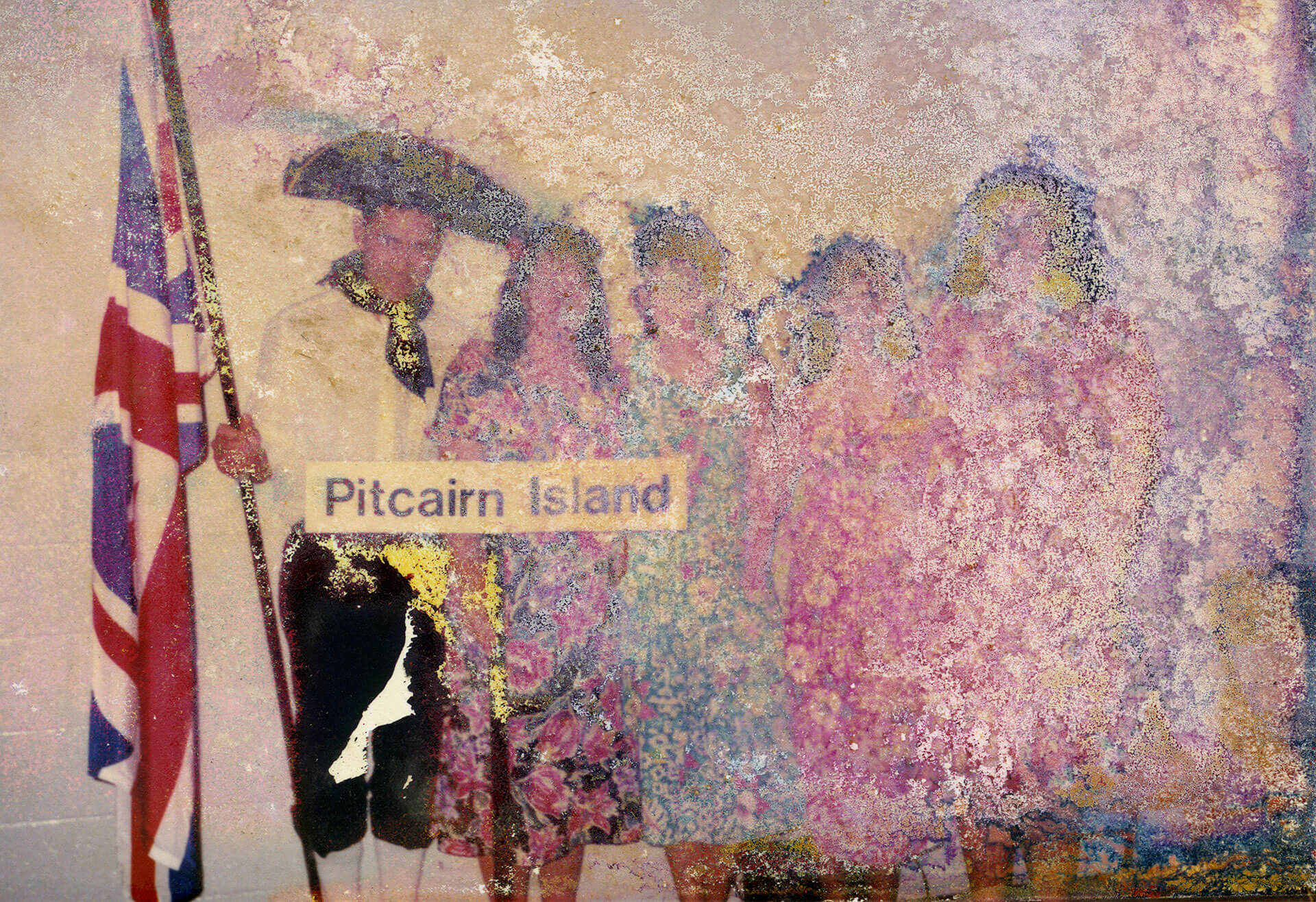
Christians Cave, The Omniscient Eye (expired Polaroid)
Christians Cave, The Omniscient Eye (expired Polaroid)
Christians Cave, The Omniscient Eye (expired Polaroid)
Christians Cave, The Omniscient Eye (expired Polaroid)
Christian’s Cave sits like an all-seeing eye surveying Adamstown. It is so named, as this was the spot where Fletcher himself would sit as his own madness closed in—watching over the tiny community that he had founded and scanning the horizon for passing ships. I wondered whether Fletcher was looking for ships not to raise the alarm, but as a way out, and I ruminated on whether he was purposefully distancing himself from the goldfish bowl below.
—I too took solace in the cave. Most islanders are unable to clamber up the steep slopes to its entrance, and those who can are disinterested. Loose rock and spiky “grab-a-leg” seedlings make the walk hair raising and uncomfortable. There are no barriers to be found, just a cliff edge vanishing into the blue.
—I was happy to take the risk, as I knew that I would not be bothered up there. Though if I made the pilgrimage for privacy, that I did not find. There is nowhere quite as conspicuous Christian’s Cave. It is visible in almost every outdoor photograph that I took, a reminder of the Mutiny past. If Pitcairn has an iconic location, this is it.
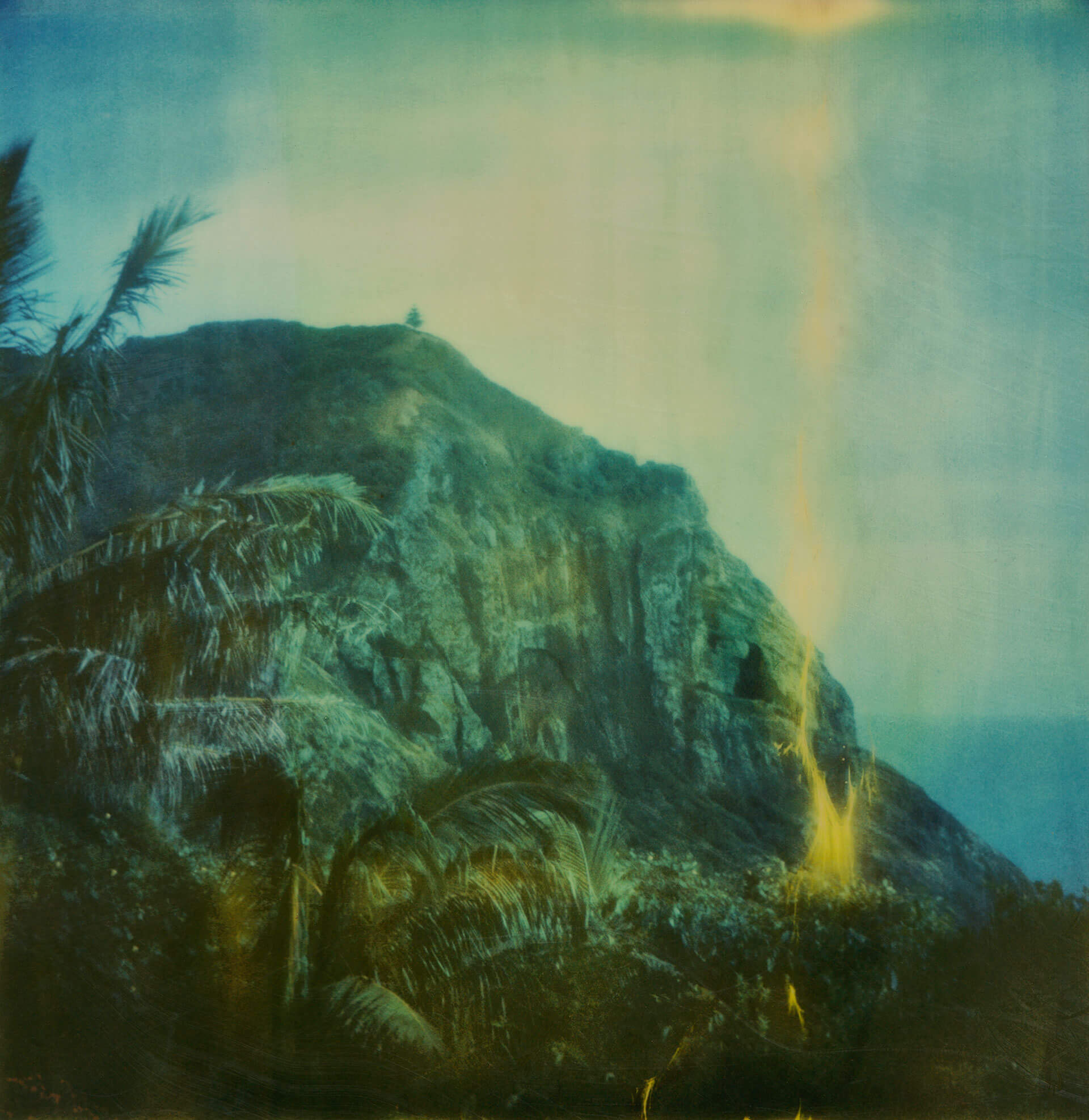
Kevin Young at Up Tibi
Kevin Young at Up Tibi
Kevin Young at Up Tibi
Kevin Young at Up Tibi
Kevin is Steve Christian’s first cousin and the first person I met on island. He is a born Pitcairn islander, but spent many years in New Zealand’s Air Force. In his early 60s, he made the decision to move back to Pitcairn to try to set up a business in order to bring an alternative funding and population stream into the island. His optimism was infectious, even if the realities of his plans seemed impossible to imagine.
—Here, Kevin sits on his bed in his new home, Up Tibi (later renamed Kate Fence). On Pitcairn, building materials are in short supply and in high demand. It can take several years to gather all the necessary supplies due to cargo restrictions, the alternative is to take over an empty house when one becomes available. Up Tibi is the former home of one of Kevin’s distant relatives, a man who was convicted in the trials, Brian Young. Brian is the only convicted man who has managed to leave Pitcairn permanently for New Zealand. It is a generally accepted fact, that the convicted men would be denied permanent settlement visas (and in some cases, even transit visas) due to the severity of their crimes, except for passage to the
—UK. Apparently, Brian was allowed medical dispensation after a diabetes linked gangrenous infection resulted in the loss of a toe. There was some discussion between islanders that the toe incident was in part self inflicted, when piles of unused prescription diabetes medication were found in his home.
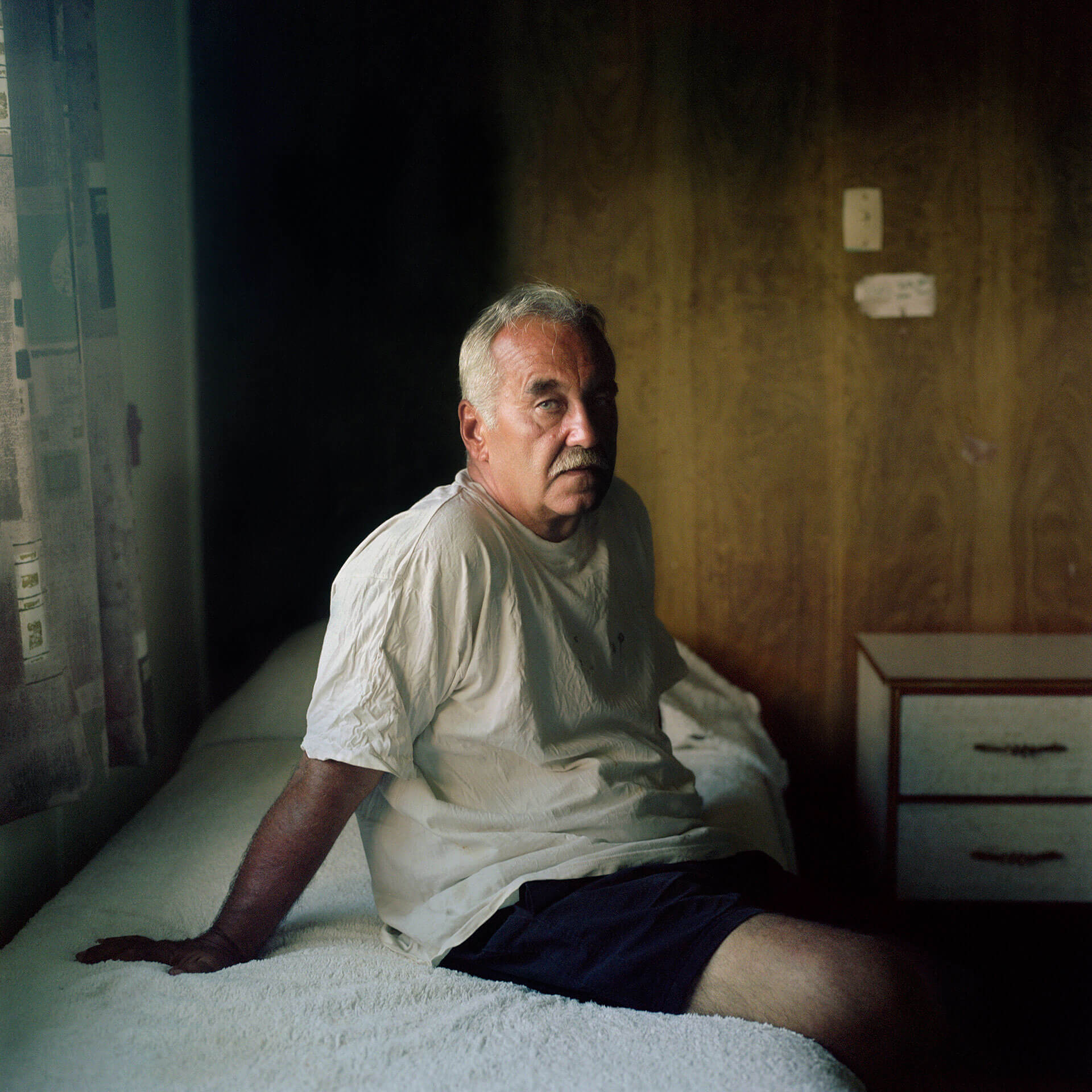
Tania’s Room, Big Fence
Tania’s Room, Big Fence
Tania’s Room, Big Fence
Tania’s Room, Big Fence
Tania’s room lies empty. Steve and Olive Christian’s daughter’s room in their sprawling home, Big Fence, is now left untouched. Like a time capsule, it is filled with the accoutrements of childhood, and a Princess and the Pea stack of mattresses, still partially made up with pink sheets. In Tania’s room the absence is felt—a girl’s room rendered in dusty pastel tones, abandoned on the brink of adulthood, never to be returned to. A youth forgotten.
—On Pitcairn the age demographics are worrying for the island’s future. There are just a handful of individuals aged between 0 and 45. It was no wonder that I was referred to as being of “breeding age”. Today it is not child abuse that concerns the island, but rather a bleak future of continual decline and a non-existent birth rate. The only young man on island, David, is now pressured daily by older islanders, making him aware that it is he alone who can save them from their certain end.
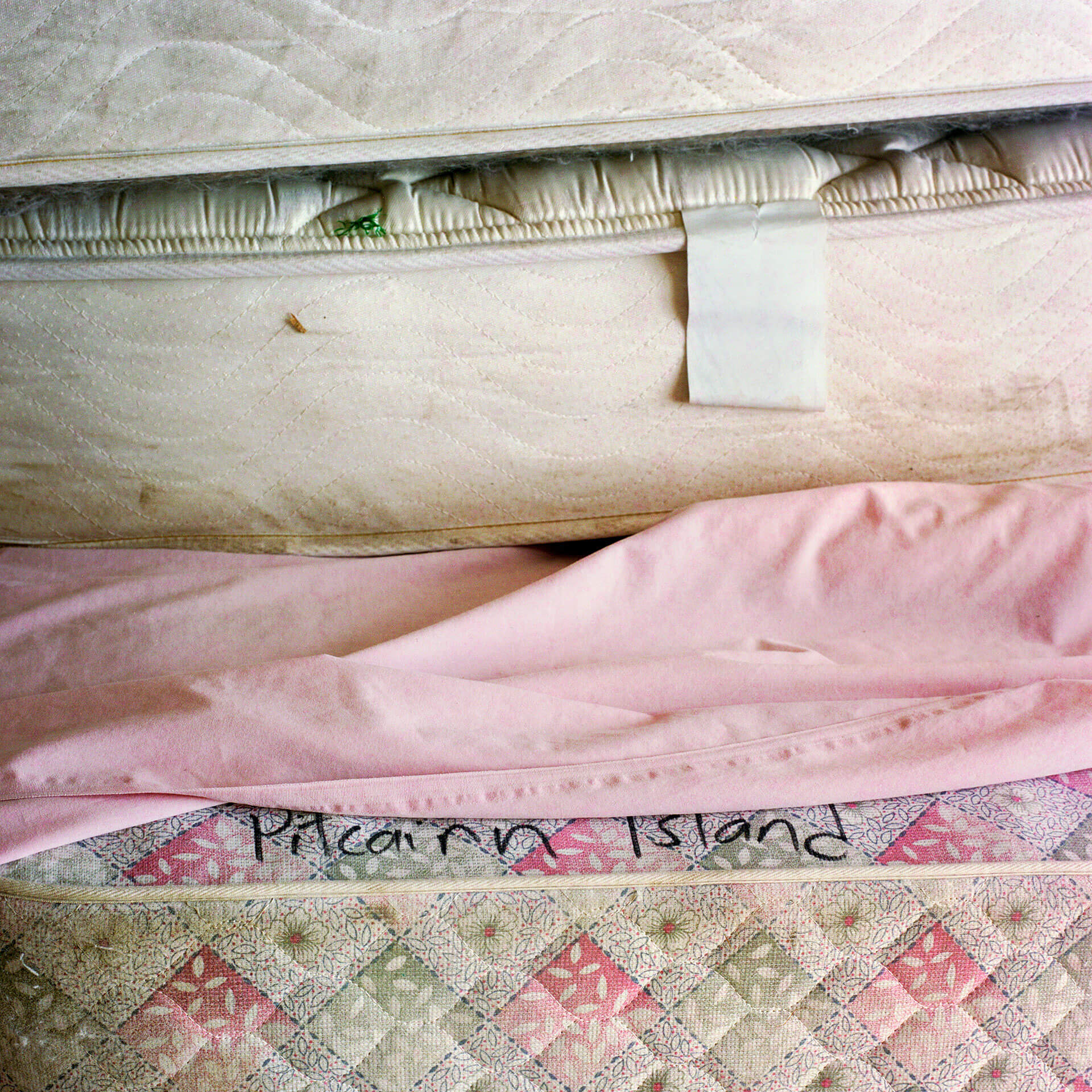
Randy Christian (expired Polaroid 55)
Randy Christian (expired Polaroid 55)
Randy Christian (expired Polaroid 55)
Randy Christian (expired Polaroid 55)
Randy Christian is Steve Christian’s (my host) middle son. In the 2004 trials he was convicted of five rapes and four indecent assaults, including gang rape with his brother Shawn. The two men had stuffed a t-shirt into their victim’s mouth and ‘took turns’. His victim’s testimony led to widespread awareness of the sexual abuse issues on Pitcairn, and kick-started the investigation.
—He is now father to three and stepfather to one, though during my time on island, his children were living in New Zealand. It is hard to imagine that the Randy that I knew is the same man that was convicted in the trials. I knew Randy as my host’s son, a man who cooked me roast chicken and had a penchant for listening to Cher. The jovial island clown.
—I never spoke to him about his trial. It was an unspoken code of behaviour on Pitcairn, to turn a blind eye to the past. At night, however, when I was alone in my room, I would think about the compromise I was existing in—socialising with men who in the UK, I would have avoided at all costs. On Pitcairn, life exists in a kind of suspended reality, morality is twisted. Each day you weigh up the consequences of saying what you feel, versus the sanctum that silence provides. Like the island women before me, I chose silence and survival.
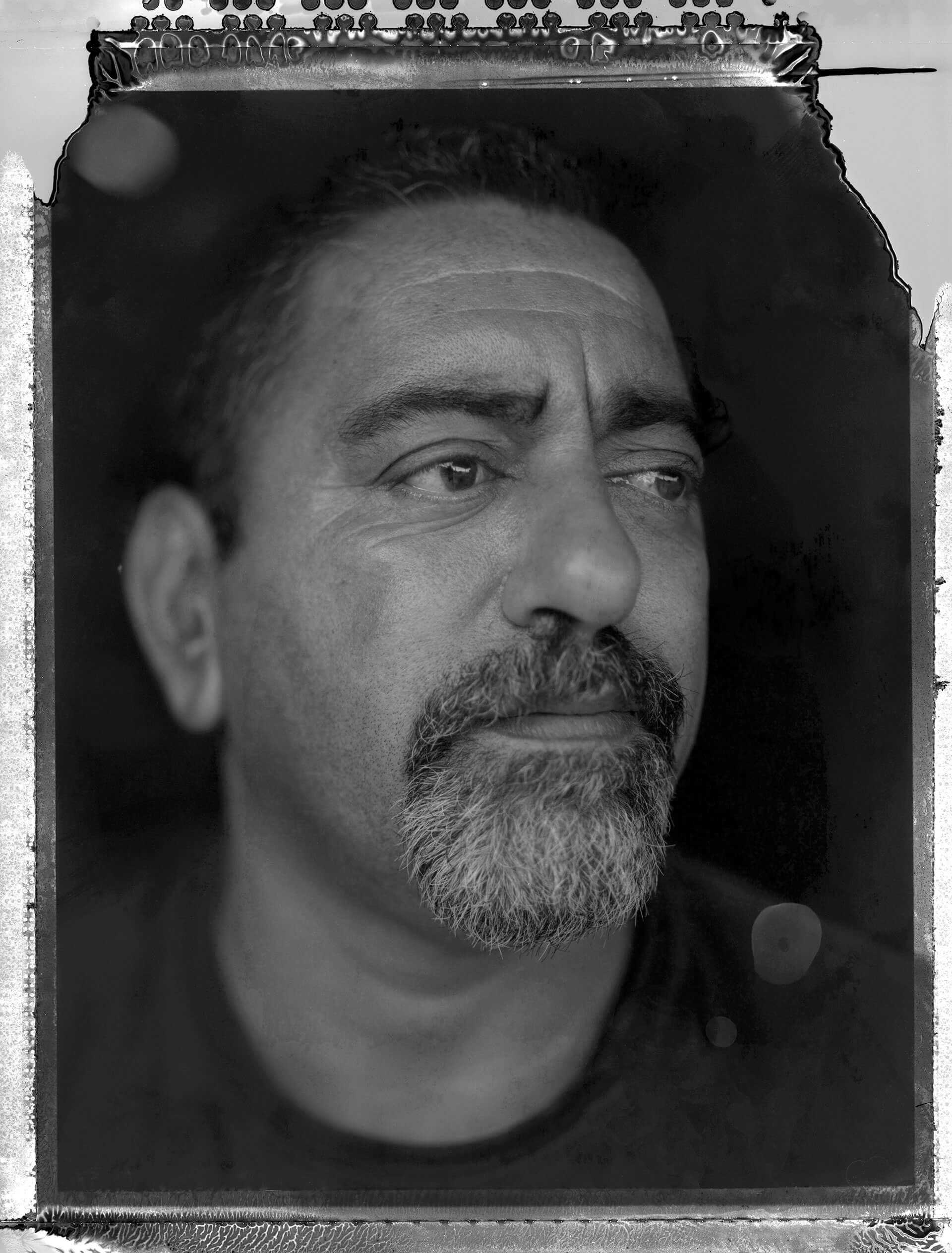
Pitcairn Girl, found photograph
Pitcairn Girl, found photograph
Pitcairn Girl, found photograph
Pitcairn Girl, found photograph
This anonymous picture was discovered stashed in the back of an album destroyed by water in the last remaining traditional dunnage house on Pitcairn (made from washed up materials thrown overboard by passing ships). Her face has been obscured and distorted, as though the physical environment of Pitcairn itself has slowly destroyed her, or erased her.
—In a sense this may be one of the most powerful images of my trip, drawing the parallel between Pitcairn’s particular geography and some of the lasting effects on its people and diaspora. When I left Pitcairn, I too felt emotionally destroyed—to leave the intensity behind was the greatest sense of freedom I have ever experienced.
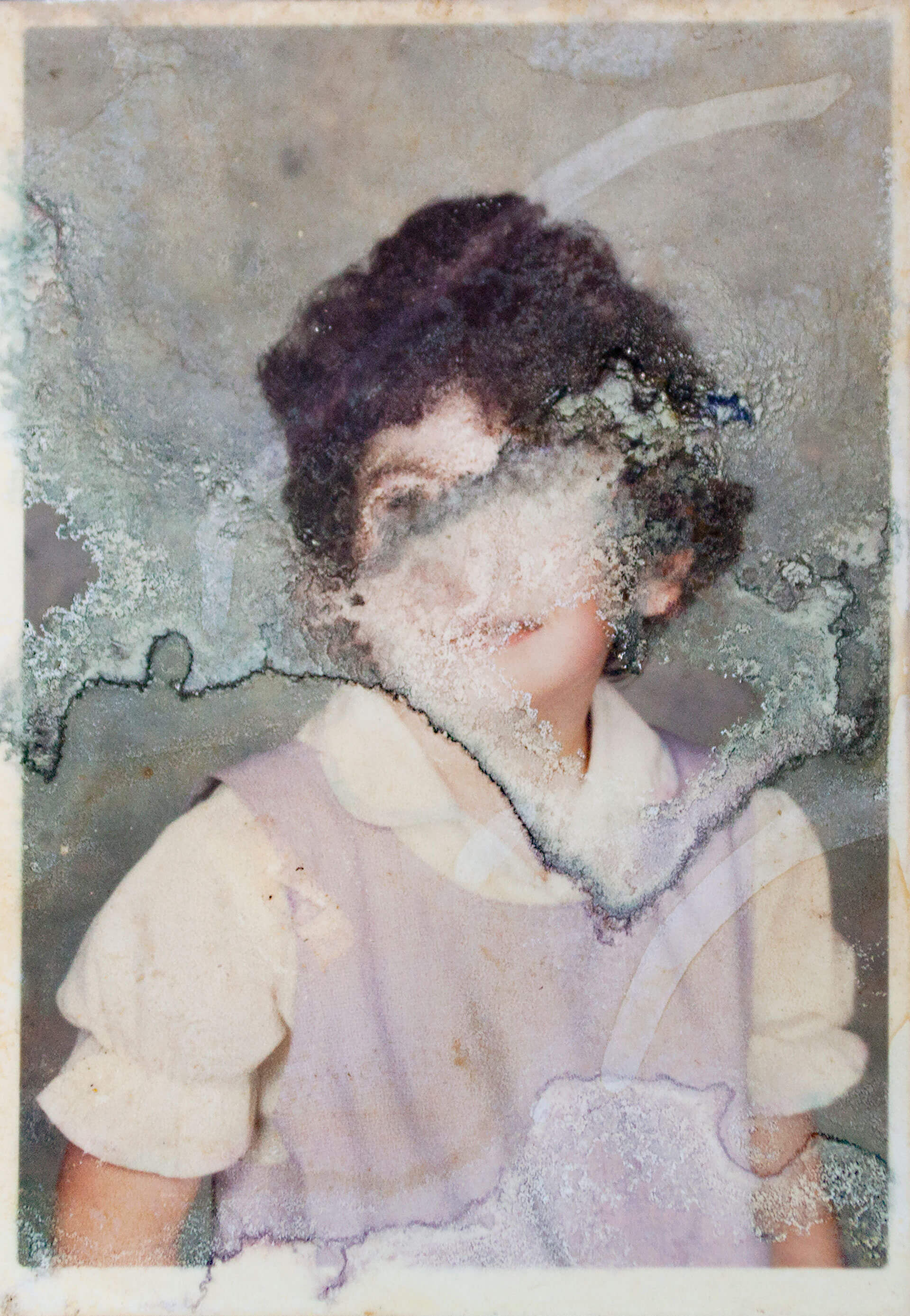
The Cracks are Tangible (expired Polaroid)
The Cracks are Tangible (expired Polaroid)
The Cracks are Tangible (expired Polaroid)
The Cracks are Tangible (expired Polaroid)
The rock fascinated me. The marks and cracks became increasingly familiar. The coarse island reflected in the attitudes and faces of the islanders.
—The expired Polaroid film on which this was shot cracked and marked too. A split between the two halves, as though the film on island was attempting to metaphorically replicate the environs in which it found itself. I would say it was a ‘happy accident’ but the word happy is perhaps misleading.
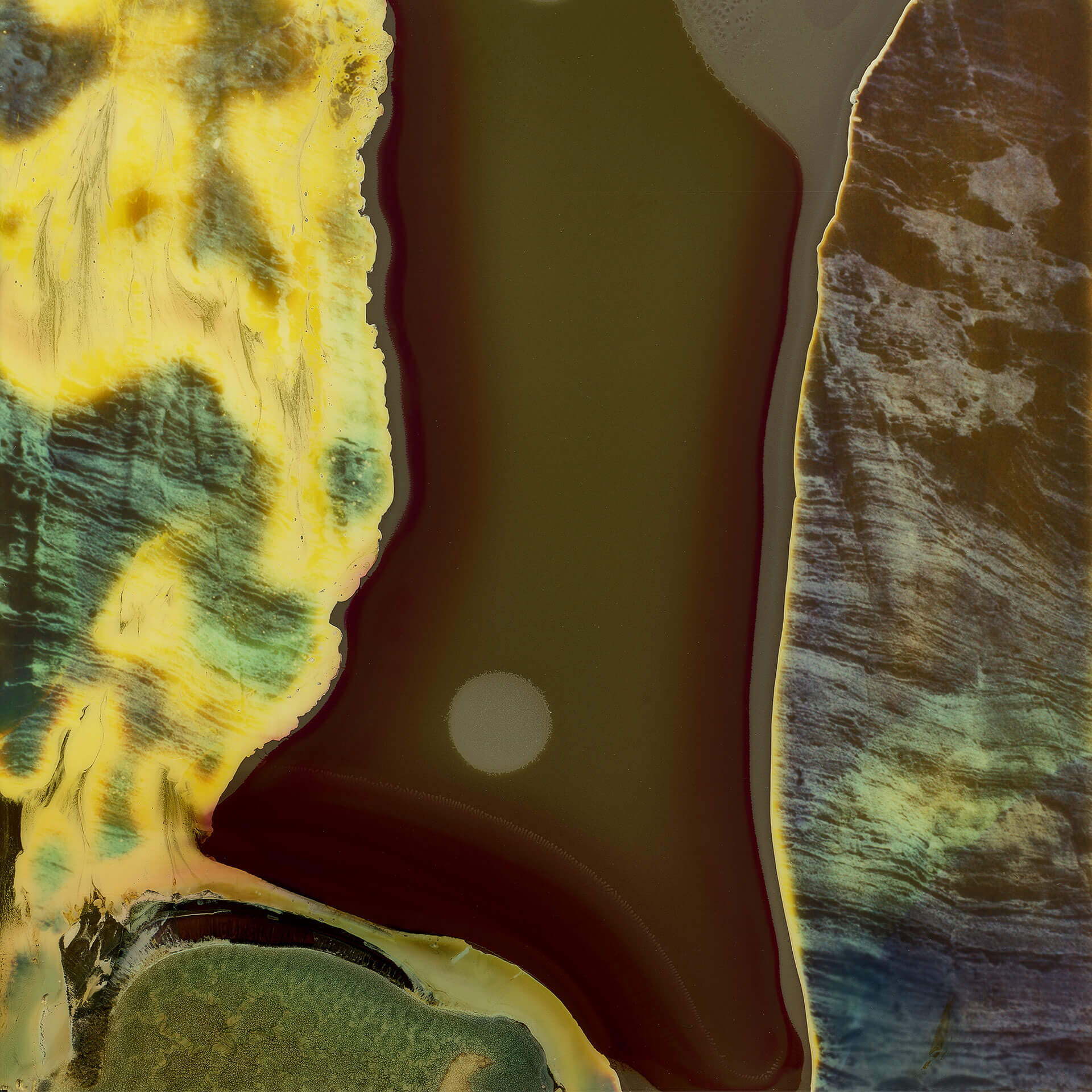
Cushana was the only child living on Pitcairn Island during my stay. She is the youngest of five, but all of her elder siblings had left for New Zealand to finish their schooling. Cushana is ferried to and from Pulau School by the island police officer, Brenda Christian, or by her mother, Charlene. At no time is she allowed to wander unaccompanied, and she is never left alone with island men. Her childhood is very different to that of the older Pitcairners, who describe a youth with no rules and absolute freedom.
—If Cushana’s world is controlled by the blue Pacific that circles the island, her life is dictated by the apparent threat of her neighbours. Cushana has a ‘safe adult’ list, and is instructed to only associate with those on it. On an island of just 42 people, Cushana’s contact list is limited. When she grows up, she wants to travel to London, see snow, and meet the Queen.
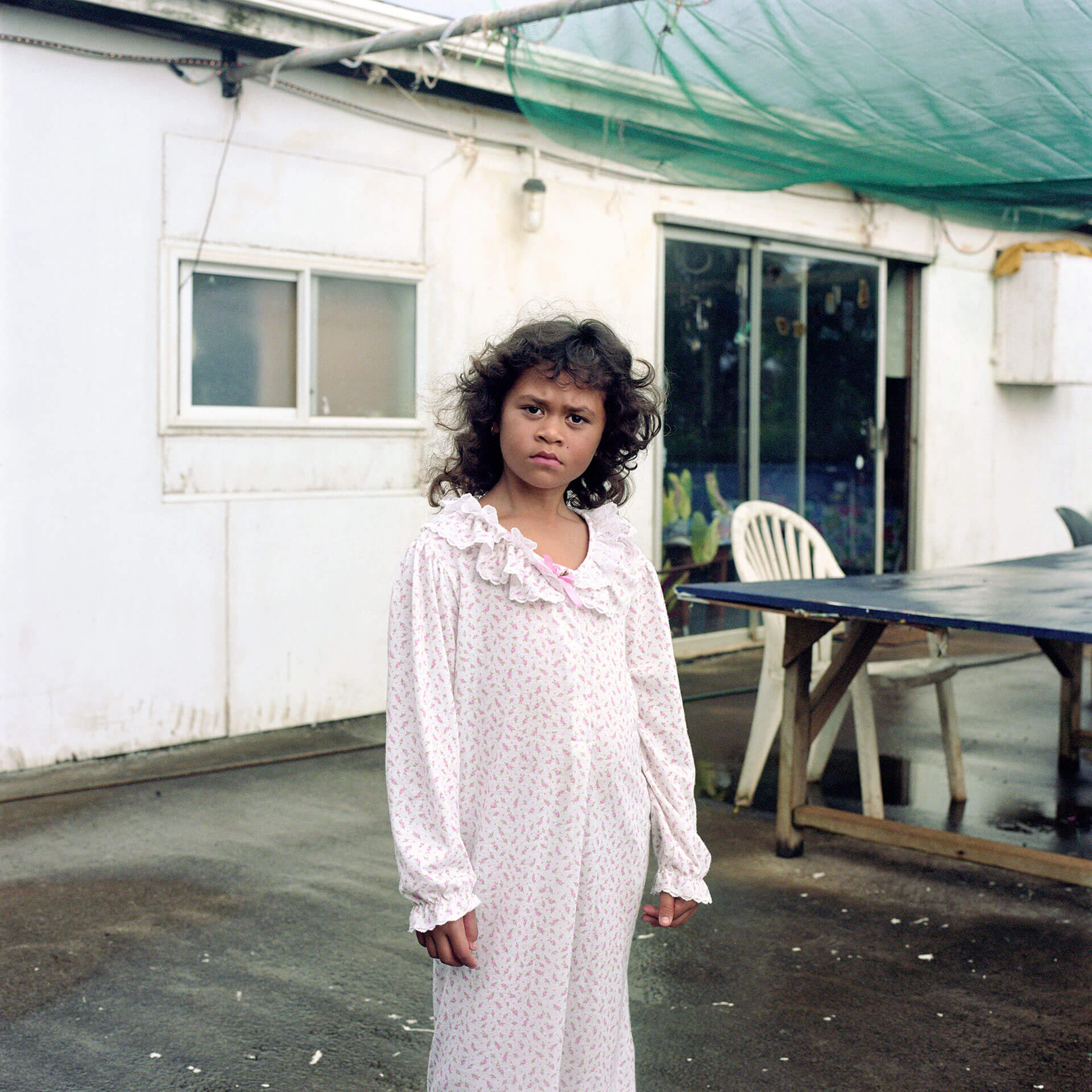
The Loneliest Child in the World: Cushana, aged 6 (b. 2009)
The Loneliest Child in the World: Cushana, aged 6 (b. 2009)
The Loneliest Child in the World: Cushana, aged 6 (b. 2009)
The Loneliest Child in the World: Cushana, aged 6 (b. 2009)
Kevin Young burns the belongings of Brian and Kari Young outside of their former home, Up Tibi. On Pitcairn, burning rubbish is a way of life, and often fires can get out of control. The smoke hangs between the palms on a calm afternoon, the air thick and weighty.
—On Pitcairn I often felt that I was looking through a cloud of smoke, trying to decipher the detail. Somehow this image seem to sum up my island experience, everything in front of me, but just out of view, obscured. Quite literally smoke and mirrors.
Kevin Young burns the belongings of Brian and Kari Young outside of their former home, Up Tibi. On Pitcairn, burning rubbish is a way of life, and often fires can get out of control. The smoke hangs between the palms on a calm afternoon, the air thick and weighty.
—On Pitcairn I often felt that I was looking through a cloud of smoke, trying to decipher the detail. Somehow this image seem to sum up my island experience, everything in front of me, but just out of view, obscured. Quite literally smoke and mirrors.
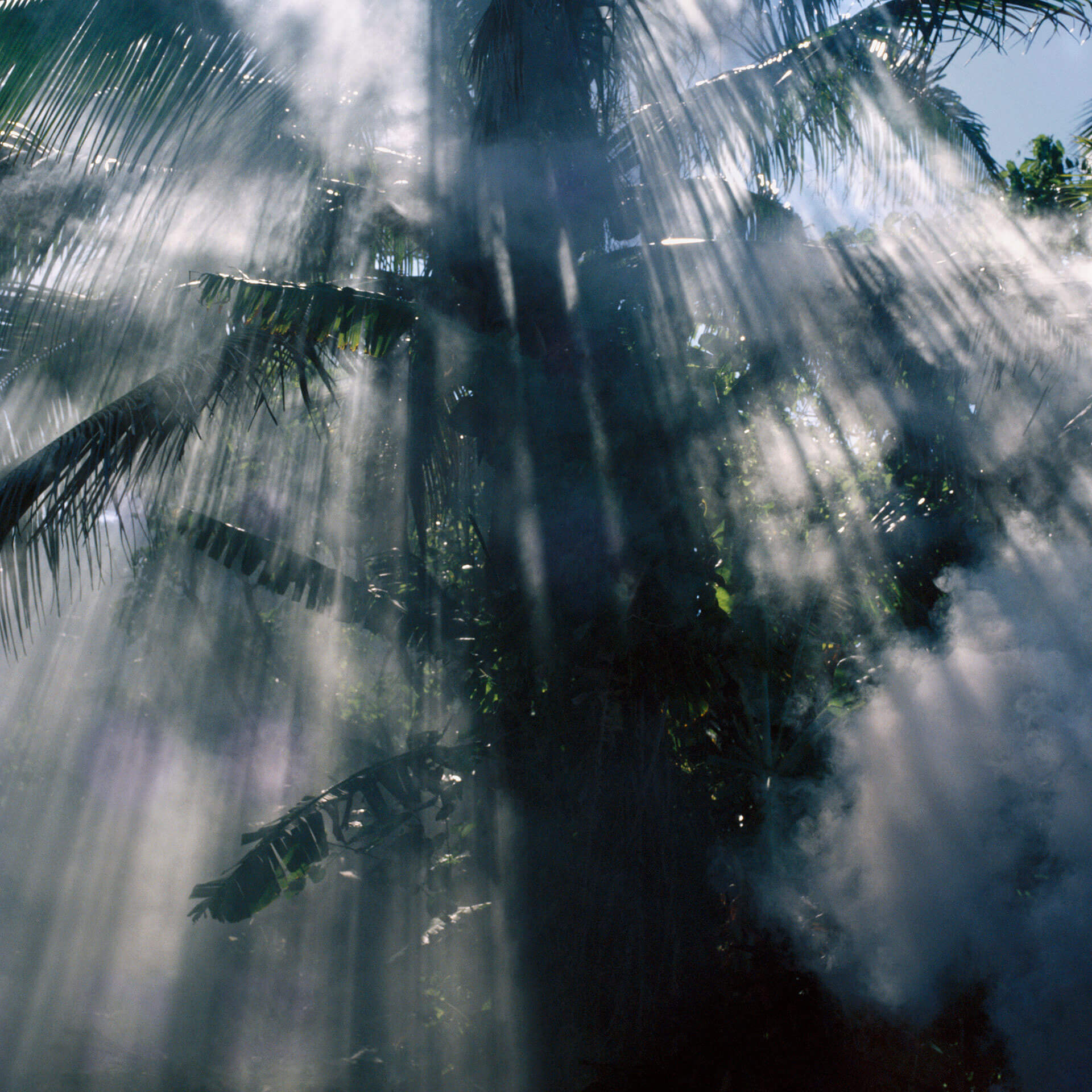
Burning, Up Tibi
Burning, Up Tibi
Burning, Up Tibi
Burning, Up Tibi
Cushana and the frigates
Cushana and the frigates
Cushana and the frigates
Cushana and the frigates
Cushana, Pitcairn’s only child, waits for the frigate birds that circle the landing with detritus from the day’s catch, feeding the giant birds by hand. When they swoop down they appear bigger than her. More like Pterodactyls than birds.
—A storm was brewing, and a wall of rain was quickly approaching from the sea, as the wind was picking up, Cushana’s joyous yelps were vanishing with the gusts. I watched her shiver with excitement and wait for the right moment to let go, just as the frigate had successfully grasped its prize. Watching Cushana and the frigates reminded me that here we were at the intersection between man and nature... It is impossible to divorce the Pitcairners from their rock—the two are inexorably linked.
—The isolation and rugged landscape as coarse as the personalities and attitudes of our living characters, as though they come from the pages of a book. It is as if their geographical location is a device or literary construct. Sometimes the parallels between the island and its people can seem “too neat” a metaphor, but the intermingling of fact and fiction are Pitcairn’s reality.
